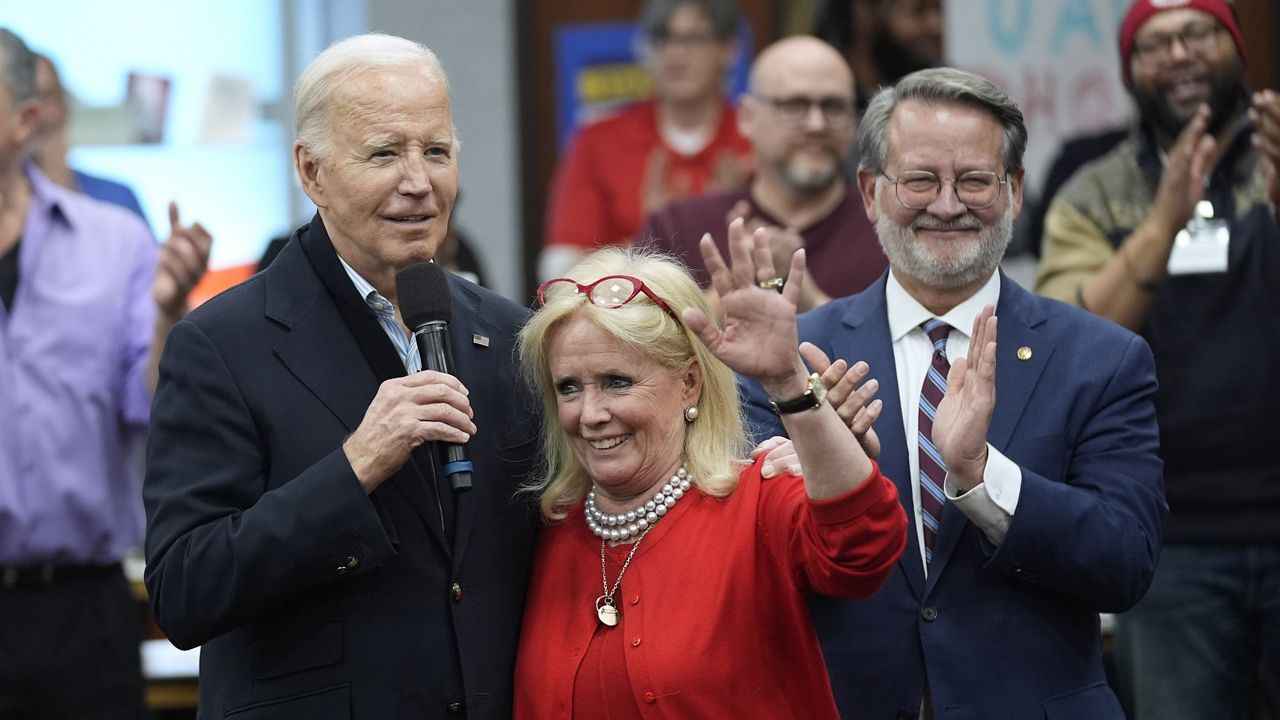One day before voters take to the polls in battleground Michigan for the state's primary, Gov. Gretchen Whitmer on Monday said she thinks there will be a solid number of “uncommitted” votes in protest of President Joe Biden’s handling of the Israel-Hamas war.
“I think there will be a sizable number of votes for 'uncommitted,'” Whitmer, a co-chair for Biden’s 2024 campaign, said in an interview with NBC News.
“I think that that’s possible,” she added when asked if the number of “uncommitted” votes will reach 10,000 – the threshold organizers of the effort have set as their goal.
Michigan, home to one of the largest Arab American communities in the nation, has become one of the most visible examples of the anger among a portion of Democratic voters that has bubbled up over Biden’s handling of the Israel-Hamas war as the death toll in Gaza continues to rise.
The issue has sparked protests across the nation, including interruptions at many of Biden’s events attended by the public for months. Michigan’s primary on Tuesday is seen as a key test of just how salient those concerns are among voters on the left as a group of activists urge Democrats in the state to vote “uncommitted” to send a message to the incumbent president.
Michigan Democrat Rep. Rashida Tlaib, only Palestinian American in Congress, is among those calling for the protest vote -- her sister is a leader in such efforts locally.
On Sunday, Whitmer along with another prominent Michigan Democrat, Rep. Debbie Dingell, acknowledged uncertainty around how Biden will fare on Tuesday.
“I'm not sure what we're going to see on Tuesday, to tell you the truth,” Whitmer said in an interview on CNN’s “State of the Union.”
The Michigan governor went on to recognize the “pain that people are feeling” in Michigan’s Arab and Muslim along with Jewish communities. At the same time, she offered a stark choice to Democrats upset with the incumbent president.
“I just want to make the case, though, that it's important not to lose sight of the fact that any vote that's not cast for Joe Biden supports a second Trump term,” Whitmer said.
For her part, when asked about the protest effort against Biden on CBS’ “Face the Nation,” Dingell noted there are “two campaigns” and remained vague on what those efforts will mean on Tuesday.
“One is an abandon Biden campaign, but the other, the major campaign that has made over 100,000 calls – we'll see how many people vote on Tuesday – are trying to make sure the president hears them,” she said.
Asked whether Biden should have met with Arab American leaders when he traveled to Michigan to tout his United Auto Workers endorsement in the state earlier this month, Dingell acknowledged the anger in the community.
“Look, I do believe that he is going to need to do that at some point down the road,” she said. “This community is pretty angry right now.”
About a week after Biden’s trip, top administration officials traveled to Michigan to meet with Arab American and Muslim leaders. It came after community members declined to meet with Biden’s 2024 campaign manager Julie Chavez Rodriguez.
Both Whitmer and Dingell emphasized the importance in November of Michigan – a crucial so-called “blue wall state” that banded with Pennsylvania and Wisconsin in 2020 to flip from red to blue and help send Biden to the Oval Office.
“It's been a purple state as long as I've been doing presidential elections,” Dingell said. “This is a very important issue here, but there are going to be other issues too. This state's going to be purple from now until November.”
Trump won Michigan by about 10,000 votes in 2016 while Biden won in 2020 by about 154,000 votes.
“I do know that we have got about nine months until the general election, and we are taking Michigan very seriously, as they should,” Whitmer said. “Michigan's always a state where the election is close.”



